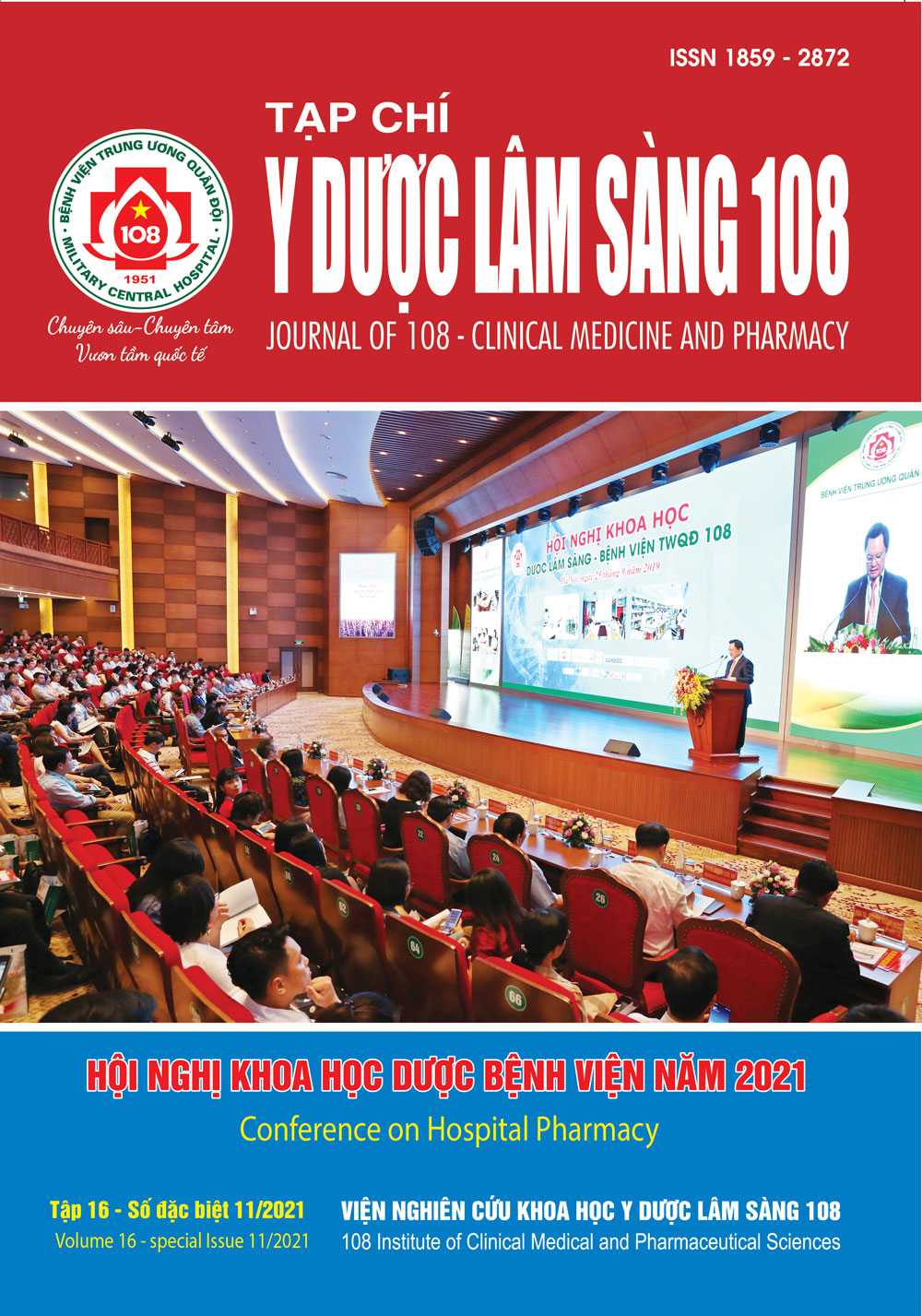Using antiemetic agents for chemotherapy-induced nausea and vomiting prevention in cancer patients at 108 Military Central Hospital
Main Article Content
Keywords
Abstract
Objective: To describe characteristics of antiemetic agent utilization for chemotherapy-induced nausea and vomiting (CINV) prevention in cancer patients and to describe characteristics of this observed events in study patients. Subject and method: A cross-sectional, descriptive study on cancer inpatients, treated with 1-day chemotherapy regimen from 25 to 31 Aug 2021 at 108 Military Central Hospital, based on electronic medical record and interview data. Result: In 85 studied patients, the most frequent CINV prevention regimen was a 5-HT3 RA associated with a corticoid, accounting for 91.8% and 42.4% in the acute and delayed phase, respectively. IV granisetron 2mg/day was prescribed for 63.5% of patients in the acute phase and 30.6% in the delayed one. The percentages of corticoids with dexamethasone equivalent dose of 8mg/day were 61.2% and 54.1%, respectively. The proportion of patients experiencing CINV events in the acute and delayed phase was 23.5% and 18.8%, respectively. Conclusion: Some findings in antiemetic agent use and reported CINV need further researches and interventions in order to optimize this suppotive care practice for cancer patients in Vietnam.
Article Details
References
2. Nguyễn Tuyết Mai (2013) Biến cố bất lợi của hóa trị liệu trên bệnh nhân ung thư vú điều trị tại Bệnh viện K và một số yếu tố ảnh hưởng. Y học thực hành 2(859), tr. 34-37.
3. Aapro M, Jordan K, Feyer P (2013) Prevenention of Nausea and Vomiting in cancer patients. Springer Healthcare Ltd, London, UK.
4. Al Qadire M (2018) Chemotherapy-induced nausea and vomiting: Incidence and management in jordan. Clin Nurs Res 27(6): 730-742.
5. Alamri A, Alawlah YA, Qiao Y et al (2018) A retrospective review of treatment patterns of antiemetic agents for chemotherapy-induced nausea and vomiting. SAGE Open Med 6.
6. Jordan K, Hinke A, Grothey A et al (2007) A meta-analysis comparing the efficacy of four 5-HT3-receptor antagonists for acute chemotherapy-induced emesis. Support care cancer 15(9): 1023-1033.
7. Warr DG, Grunberg SM, Gralla RJ et al (2005) The oral NK1 antagonis aprepitant for the prevention of acute and delayed chemotherapy-induced nausea and vomiting: Pooled data from 2 randomised, double-blind, placebo controlled trials. European Journal of Cancer 41(9): 1278-1285.
8. Yu S, Burke TA, Chan A et al (2015) Antiemetic therapy in Asia Pacific countries for patients receiving moderately and highly emetogenic chemotheray - a descriptive analysis of practice patterns, antiemetic quality of care, and use of antiemetic guidelines. Support Care Cancer 23(1): 273-282.
 ISSN: 1859 - 2872
ISSN: 1859 - 2872
